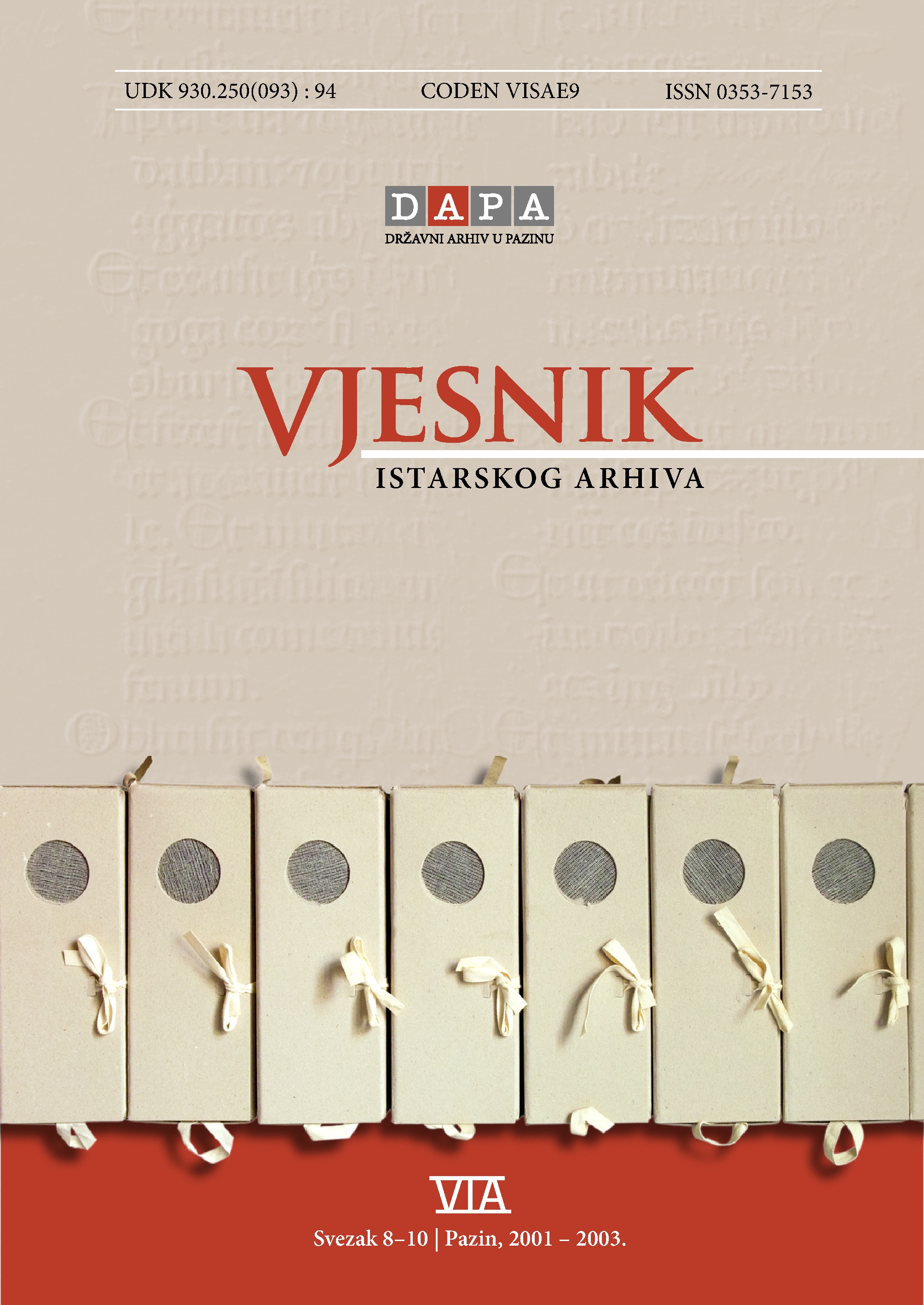Women in Family and Society – according to the Provisions of the Statute of Motovun
Abstract
In the medieval society of Motovun when a woman entered into a marriage in the Istrian manner she could live a relatively sheltered life. That is to say that regulations used to prescribe that the properties which had been brought by a woman into the marriage, which were however not directly managed by her, had not to be in any way unreasonably seized without her personal consent. On the contrary, her husband was not allowed without his wife’s consent to manage freely his own properties either, considering that she was still the heir of half of these properties. Moreover, after her husband’s death, the wife became the tutor of her own children, though she could not independently decide on all the issues related to them. A girl was not allowed to decide independently who she was going to marry to, that is to say she needed her father’s consent, i.e. her mother’s or her relative’s or if not even the consent of the podesta. If she decided in spite of everything to stand up against it, she would be simply deprived of her father’s and her mother’s properties. In any case, if she decided to live in conformity with the ruling standards and her parents’ will, a daughter was never discriminated from her brothers, at least as far as the heritage was concerned, considering that children used to inherit their parents without distinction of sex. If a married woman lived in conformity with the existing standards, in principle, as far as the basic existential sense was concerned, she could live a relatively sheltered life. However in cases of violating these universally valid social standards she would be pressed to a living on the margins of society. In cases of adultery she would loose the dowry and all the other properties, which would in those cases go to her husband and moreover, she would be even at last sentenced to six months imprisonment. If it could be proven that a woman was a procuress she would be punished by cutting her nose off and by being once for ever banished from the district of Motovun.The legislator of Motovun had also provided for the punishments in cases of rape, however, they haven’t been preserved. The position of a woman in the medieval society in Motovun was mainly determined by her role in the family, and in that sense that position was considered to be a relatively safe one. Although she could not independently decide on many business matters, she was however not totally excluded from the business activities. In fact if a woman entered into a marriage in the Istrian manner, a woman was considered to have almost equal rights as her husband had, of course, only in cases when she adhered to the universally valid social standards. However, in cases when she still decided to violate them she would be pushed to live on the fringes of society, and that is how her own survival used to come into question.
Downloads
Published
Issue
Section
License

This work is licensed under a Creative Commons Attribution-NonCommercial 4.0 International License.

